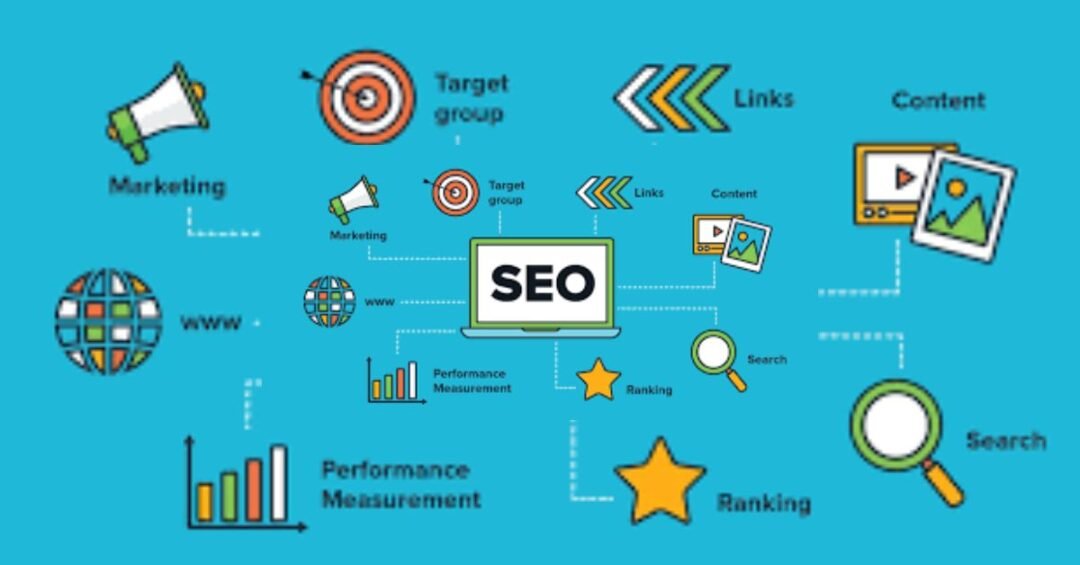SEO interview questions and answers provide insights into the best practices and strategies used to optimize websites and improve their rankings on search engine results pages. It covers topics such as keyword research, on-page and off-page optimization, link building, and website analytics.
This article will explore these questions and answers in detail to help you prepare for your next SEO interview.
What Is Seo And Why Is It Important?
SEO, or Search Engine Optimization, is the process of optimizing a website to improve its visibility and ranking in search engine results pages (SERPs). It involves various techniques and strategies to drive organic traffic to a website, ultimately increasing its online presence and attracting potential customers or clients.
SEO is important for businesses because it helps them reach a wider audience and target specific keywords or topics related to their products or services. By improving their search rankings, businesses can increase their brand visibility and credibility, gain a competitive edge, and generate more leads or conversions. SEO also helps businesses optimize their website structure and content, making it more user-friendly and accessible to search engine crawlers.
In a highly competitive online landscape, SEO plays a crucial role in helping businesses get discovered by their target audience and stand out from their competitors, resulting in long-term growth and success.
On-Page Seo Interview Questions
Meta tags are snippets of code that provide information about a webpage’s content. They include meta titles, which are displayed as the page title in search engine results, and meta descriptions, which provide a summary of the page’s content. Optimizing meta tags with relevant keywords can improve a website’s visibility in search engine results and attract more organic traffic.
Website URLs should be optimized for SEO by keeping them concise, descriptive, and keyword-rich. Including relevant keywords in the URL can help search engines understand the content and improve the page’s ranking in search results.
Header tags, such as H1, H2, H3, etc., help structure a webpage and make it easier to navigate for users and search engines. Properly using header tags can improve the website’s readability and SEO. The H1 tag represents the main heading of the page, while the subsequent header tags categorize the subheadings.
Keyword optimization plays a crucial role in on-page SEO. It involves researching and selecting relevant keywords that users are searching for and incorporating them naturally throughout the page’s content, including headings, paragraphs, and meta tags. Proper keyword optimization helps search engines understand the page’s relevance to a specific topic and can improve its ranking in search results.
Off-Page Seo Interview Questions
| What are backlinks and why are they important for SEO?
Backlinks are incoming links from other websites to your website. They are important for SEO because search engines consider them as a vote of confidence and trust for your website. Backlinks indicate that your website is valuable and relevant, which improves your search engine ranking. |
| How can you attract quality backlinks to your website?
To attract quality backlinks, you need to create high-quality and relevant content that others find valuable and worth sharing. Promote your content through social media, influencer outreach, and guest blogging. Build relationships with other website owners and offer to collaborate on content. Additionally, optimizing your website for search engines can increase the likelihood of attracting quality backlinks. |
| What is social bookmarking and how does it affect SEO?
Social bookmarking is a process of saving and organizing links to web pages on a social platform. It allows users to bookmark and share interesting resources. Social bookmarking can positively impact SEO by driving traffic to your website and generating backlinks. It also helps in increasing brand exposure and awareness. |
| How do you measure the success of off-page SEO strategies?
The success of off-page SEO strategies can be measured through various metrics. One of the key metrics is the increase in organic search rankings and traffic. Another metric is the number and quality of backlinks acquired. Additionally, monitoring social media engagement, brand mentions, and referral traffic can provide insights into the effectiveness of off-page SEO efforts. |
Technical Seo Interview Questions
Website speed is crucial for SEO as it directly impacts user experience. A slow-loading website can lead to higher bounce rates and lower search engine rankings. To improve website speed, you can compress images, minify CSS and JavaScript files, enable browser caching, and use content delivery networks (CDNs) for faster content delivery.
Optimizing an XML sitemap can enhance SEO. Ensure your XML sitemap includes all relevant web pages, provides accurate metadata for each page, and follows proper XML syntax. Submit the XML sitemap to search engines through their respective webmaster tools. Regularly update the XML sitemap whenever new pages are added or existing ones are modified.
Structured data is a standardized format that allows search engines to better understand the content on your website. By implementing structured data markup, you can provide search engines with additional context about your web pages, such as product details, ratings, and event information. This can result in rich snippets, improved visibility in search results, and increased organic traffic.
Optimizing a website for mobile devices is essential for SEO, considering the increasing use of smartphones and tablets. You can ensure mobile-friendliness by using responsive web design, which adapts the layout and content to different screen sizes. Optimize images for mobile, use legible fonts, enable touch-friendly navigation, and minimize loading times to enhance the mobile user experience and improve search rankings.
Local Seo Interview Questions
Local SEO is crucial for businesses as it focuses on optimizing a website for local search rankings, increasing their visibility to local customers. To optimize a website for local search rankings, several strategies can be implemented. Firstly, businesses should ensure their website has accurate and consistent business information such as their name, address, and phone number on all online directories and listings.
Keyword research plays a vital role in local SEO. It is essential to identify relevant keywords that customers might use to search for local products or services. Incorporating these keywords into the website’s content, title tags, and meta descriptions can significantly improve local search rankings.
Local reviews and ratings also have a significant impact on local SEO. Encouraging satisfied customers to leave positive reviews can boost a business’s online reputation and credibility. Additionally, businesses should engage with their customers by responding to reviews and addressing any concerns.
Other key factors to improve local SEO include optimizing the website for mobile devices, utilizing local structured data markup to provide search engines with more information about the business, and optimizing the website’s page load speed.
Seo Analytics Interview Questions
How do you measure the success of SEO campaigns?
Measuring the success of SEO campaigns is crucial to assess performance. By tracking key metrics, such as organic traffic, conversion rates, and keyword rankings, you can evaluate campaign effectiveness. Monitoring the increase in organic traffic and conversions over time demonstrates positive impact. Tracking the improvement in keyword rankings indicates search engine visibility. Additionally, analyzing user engagement metrics, like bounce rate and time on page, provides insights into the quality of traffic and site performance. Incorporating tools like Google Search Console and Google Analytics helps in obtaining accurate data for campaign measurement.
What are the key metrics to track in SEO analytics?
- Organic Traffic: The number of visitors coming to the website through organic search.
- Conversion Rate: The percentage of visitors who complete a desired action on the website.
- Keyword Rankings: The positions of targeted keywords in search engine results.
- Bounce Rate: The percentage of visitors who leave the website without exploring further.
- Page Load Time: The time it takes for a web page to fully load.
- Backlinks: The number and quality of external websites linking to the website.
How can you use Google Analytics for SEO analysis?
Google Analytics plays a vital role in SEO analysis. It helps track website performance, user behavior, and engagement metrics. By integrating Google Analytics with Google Search Console, you can gain comprehensive insights into organic search traffic and keyword performance. Utilizing Google Analytics, you can assess the traffic sources, identify popular landing pages, and analyze user demographics and interests. Moreover, it enables goal tracking and e-commerce tracking to measure conversions and revenue generated. Google Analytics also provides data on bounce rate, average session duration, and page load time, helping in optimizing website usability and performance.
Seo Algorithm Updates Interview Questions
SEO Algorithm Updates Interview Questions
Some major SEO algorithm updates that have had significant impacts include Google’s Panda, Penguin, and Hummingbird updates. The Panda update focused on penalizing low-quality content, while the Penguin update targeted websites with spammy backlink profiles. The Hummingbird update aimed to understand search queries better and provide more relevant results.
To adapt to algorithm changes, it’s crucial to focus on creating high-quality, valuable content that satisfies user intent. This includes conducting thorough keyword research, optimizing on-page elements, and building authoritative backlinks.white hat SEO expert in Bangladesh, a local SEO expert in Bangladesh, and an SEO consultant in Bangladesh,
Staying up-to-date with SEO algorithms requires continuous learning and monitoring industry news. Following reputable SEO blogs and attending webinars or conferences can help you stay informed about the latest changes. Engaging with SEO communities and participating in discussions can also provide valuable insights and knowledge sharing.
Seo Tools And Resources Interview Questions
What are some essential SEO tools for keyword research?
There are several essential SEO tools for effective keyword research. One of the most popular is Google Keyword Planner, which provides valuable insights into search volumes and related keywords. Ahrefs Keyword Explorer is another useful tool that offers comprehensive keyword data and competitive analysis. Additionally, Semrush and Moz are renowned platforms that provide in-depth keyword research features. These tools can help identify relevant keywords, search volumes, and even suggest long-tail variations to enhance SEO efforts.
How can you use Google Search Console for SEO analysis?
Google Search Console is a powerful tool for SEO analysis. It allows website owners to monitor their site’s performance in Google search results. By utilizing this tool, you can track click-through rates, identify indexing issues, and gain valuable insights into keyword rankings. It also provides information about crawl errors, mobile usability, and insights into the top pages driving organic traffic. Google Search Console is a valuable resource to optimize your website and improve its visibility in search engine results.
What are some reputable sources for SEO news and updates?
Staying updated with the latest SEO news and updates is crucial for success in the field. Some reputable sources to follow include Search Engine Journal, Moz Blog, and Search Engine Land. These platforms provide reliable and up-to-date information on algorithm changes, industry trends, and best practices. Additionally, Google Webmaster Central Blog and SEMrush Blog offer valuable insights straight from the search engine giant and SEO tool experts. By staying informed through these sources, you can adapt your SEO strategies to meet the ever-changing landscape of search engine optimization.
Seo Best Practices And Advice Interview Questions
Blogging has become an integral part of many online businesses, and understanding SEO best practices and advice is crucial for success. By avoiding common SEO mistakes, you can increase your website rankings and visibility without infringing search engine guidelines. These errors include keyword stuffing, duplicate content, and using black hat techniques. To enhance your website’s ranking, focus on creating quality content that is relevant to your target audience. Conduct thorough keyword research and incorporate them organically into your website’s meta tags, headings, and body content.white hat SEO expert in Bangladesh, a local SEO expert in Bangladesh, and an SEO consultant in Bangladesh
To develop an effective SEO strategy, start by analyzing your website’s current performance. Assess your website’s load time and ensure it is mobile-friendly. Conduct a comprehensive audit of your website’s on-page and off-page elements, optimizing for keywords, internal linking, and backlinking. Monitor your website’s performance using tools such as Google Analytics and Google Search Console.
| Common SEO Mistakes to Avoid |
|---|
| Keyword stuffing |
| Duplicate content |
| Using black hat techniques |
Remember, an effective SEO strategy is a continuous and iterative process. Stay updated with the latest trends and algorithm changes to ensure you are always implementing SEO best practices. By following these guidelines, you can improve your website’s rankings organically, boost online visibility, and attract more targeted traffic.

Credit: www.youtube.com
Frequently Asked Questions On Seo Interview Questions And Answers
What Are The Basic Questions For Seo Interview?
Basic questions for an SEO interview revolve around keyword research, on-page optimization, backlinks, and analytics.
How Do I Prepare For An Seo Interview?
To prepare for an SEO interview, follow these steps: 1. Research the company and familiarize yourself with their SEO practices. 2. Study SEO concepts such as keyword research, on-page optimization, and link building. 3. Stay updated with the latest SEO trends and algorithms, such as Google’s updates.
4. Practice answering common SEO interview questions and demonstrate your expertise. Remember to showcase your knowledge, experience, and enthusiasm for SEO during the interview. Good luck!
How Do You Introduce Yourself In An Seo Interview?
Introduce yourself in an SEO interview by stating your name, experience, and expertise concisely.
What Is Seo In Simple Words?
SEO, or search engine optimization, is the process of improving your website’s visibility and ranking on search engine results pages.
Conclusion
To sum it up, understanding and preparing for SEO interview questions is essential for anyone looking to land a job in the digital marketing field. By familiarizing yourself with common SEO terms, algorithms, and strategies, you can confidently tackle any interview question that comes your way.
Remember to emphasize your hands-on experience and provide specific examples of successful projects you’ve worked on. Demonstrating your ability to analyze data, optimize websites, and stay up to date with industry trends will make you stand out among other candidates.
Keep in mind that being adaptable and always willing to learn are key traits that employers look for in SEO professionals. So, stay curious, stay informed, and always be ready to showcase your expertise during an SEO interview. Good luck!

I have been working as an SEO Expert in Bangladesh for a long time and now providing the best SEO Service in Bangladesh. With the approach to Semantic SEO that eschews superfluity. I can get your business web page at the top of the SERP list. Using the latest digital marketing trends, I can enhance your online visibility and drive more website traffic.


